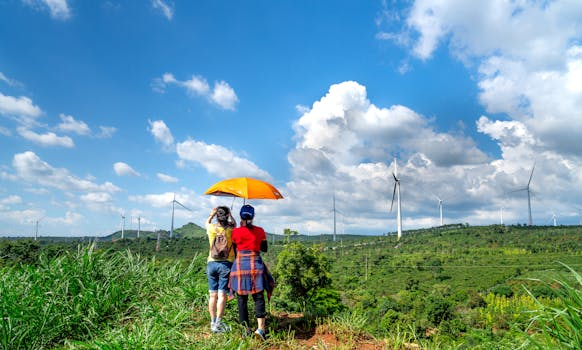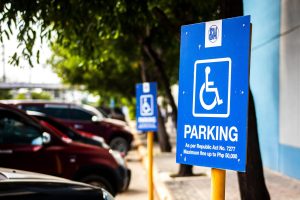Renewable Energy Personal Assistants: Intelligent Sustainable Energy Management Technologies
Renewable energy has become an increasingly important topic in recent years as the world continues to face the challenges of climate change and the depletion of non-renewable energy sources. As more and more individuals and businesses strive to reduce their carbon footprint and embrace sustainability, there has been a growing demand for innovative technologies that can help manage and optimize energy usage. That’s where renewable energy personal assistants come in – intelligent sustainable energy management technologies designed to revolutionize the way we produce and consume energy. In this article, we will explore the concept of renewable energy personal assistants and how they can play a key role in driving the transition to a more sustainable future.
The Rise of Renewable Energy Personal Assistants
The traditional approach to energy management has been largely reliant on human decision-making, often based on limited information and subjective judgments. However, with the advancement of technology, we now have access to a wealth of data and sophisticated algorithms that can help us make smarter and more efficient energy choices. Renewable energy personal assistants leverage this technology to provide personalized and intelligent energy management solutions.
What Are Renewable Energy Personal Assistants?
Renewable energy personal assistants, also referred to as RE-PAs, are digital systems that use artificial intelligence and machine learning to analyze energy consumption patterns, identify potential areas for optimization, and make recommendations for energy efficiency measures and renewable energy integration. They can be in the form of software applications, devices, or a combination of both.
How Do They Work?
RE-PAs gather data from various sources such as smart meters, weather forecasts, and energy usage patterns to create a comprehensive and real-time view of energy consumption. This data is then analyzed by specialized algorithms to provide personalized insights and recommendations for the most efficient use of energy. RE-PAs also have the capability to communicate with energy management devices such as smart thermostats and solar panels, allowing for automated energy adjustments based on user preferences and energy goals.
The Benefits of Renewable Energy Personal Assistants
One of the major advantages of RE-PAs is their ability to optimize energy usage and reduce waste. By analyzing energy consumption patterns and providing personalized recommendations, these intelligent technologies can help individuals and businesses save on energy costs and reduce their carbon footprint.
Energy Efficiency
RE-PAs can suggest ways to reduce energy consumption, such as adjusting thermostat settings or shifting energy usage to off-peak hours. They can also monitor energy usage in real-time and alert users of any unusual spikes, allowing for timely action to be taken to avoid energy waste.
Renewable Energy Integration
With the increasing availability and affordability of renewable energy sources, RE-PAs can facilitate the integration of these technologies into our energy consumption. By analyzing weather forecasts and energy patterns, they can identify the best times to use renewable energy sources, maximizing their efficiency and reducing reliance on non-renewable sources.
Cost Savings
By optimizing energy usage and integrating renewable energy, RE-PAs can also lead to significant cost savings for users. With rising energy prices and increased environmental regulations, these technologies can help individuals and businesses save on their energy bills while also contributing to a more sustainable future.
The Future of Renewable Energy Personal Assistants
The potential for RE-PAs is vast, and as technology continues to evolve, we can expect to see even more advanced and effective renewable energy personal assistants in the future. With the increasing emphasis on sustainability and the growing adoption of renewable energy sources, these technologies are poised to become an essential tool in our quest for a more sustainable world.
Potential for Integration with Smart Homes and Smart Grids
As the Internet of Things (IoT) becomes more prevalent, there is immense potential for RE-PAs to integrate with other smart devices in homes and buildings. This could lead to even more efficient energy management as these devices communicate with each other to optimize energy usage and reduce waste. RE-PAs can also be integrated into smart grids, allowing for more efficient and reliable energy distribution.
Further Developments in Artificial Intelligence
As artificial intelligence and machine learning continue to advance, we can expect RE-PAs to become even more intelligent and effective in managing energy consumption. These technologies will be able to make more accurate predictions and provide even more personalized recommendations, further optimizing energy usage.
Wider Adoption and Impact
As awareness and understanding of renewable energy personal assistants grow, we can expect to see a wider adoption of these technologies. This could have a significant impact on the global energy landscape, helping to reduce our reliance on non-renewable energy sources and minimize the negative effects of climate change.
Final Thoughts
Renewable energy personal assistants are undoubtedly a technology to watch in the coming years. With their ability to optimize energy usage, integrate renewable energy sources, and save on costs, RE-PAs have the potential to play a vital role in driving the shift towards a more sustainable future. As we continue to face the challenges of climate change, these intelligent sustainable energy management technologies can be a crucial tool in our efforts to create a greener and more efficient world.











